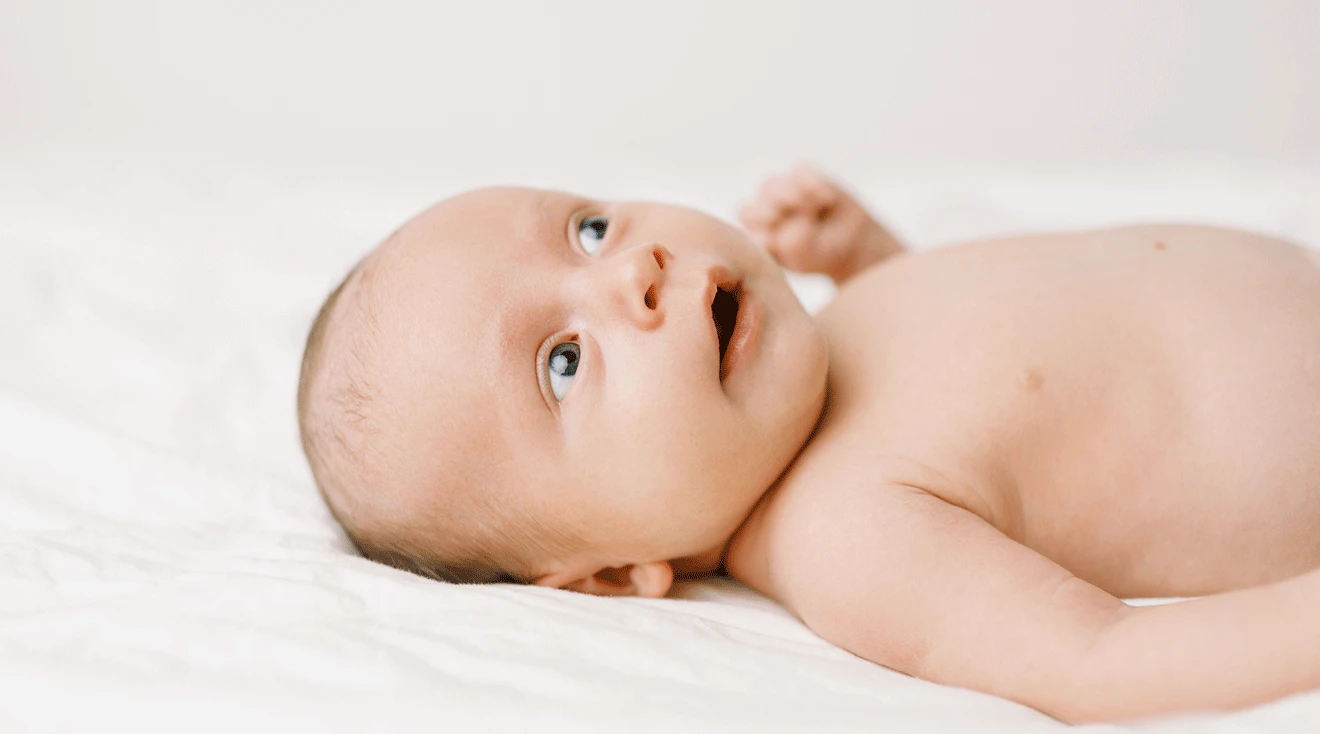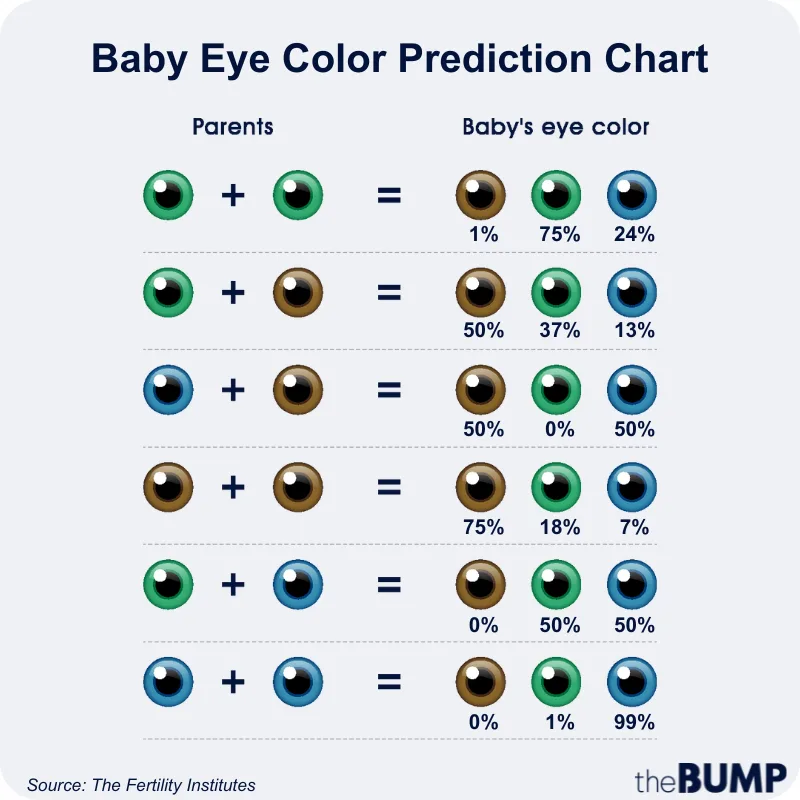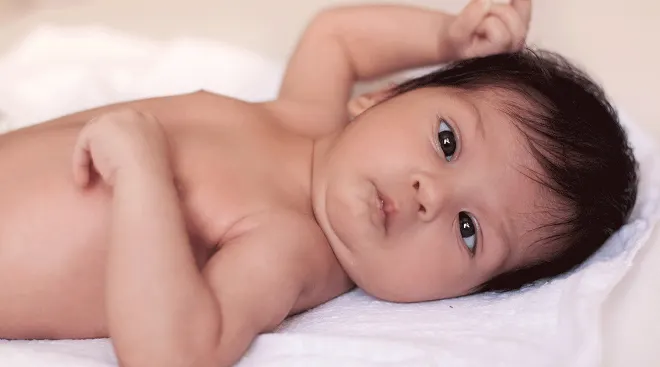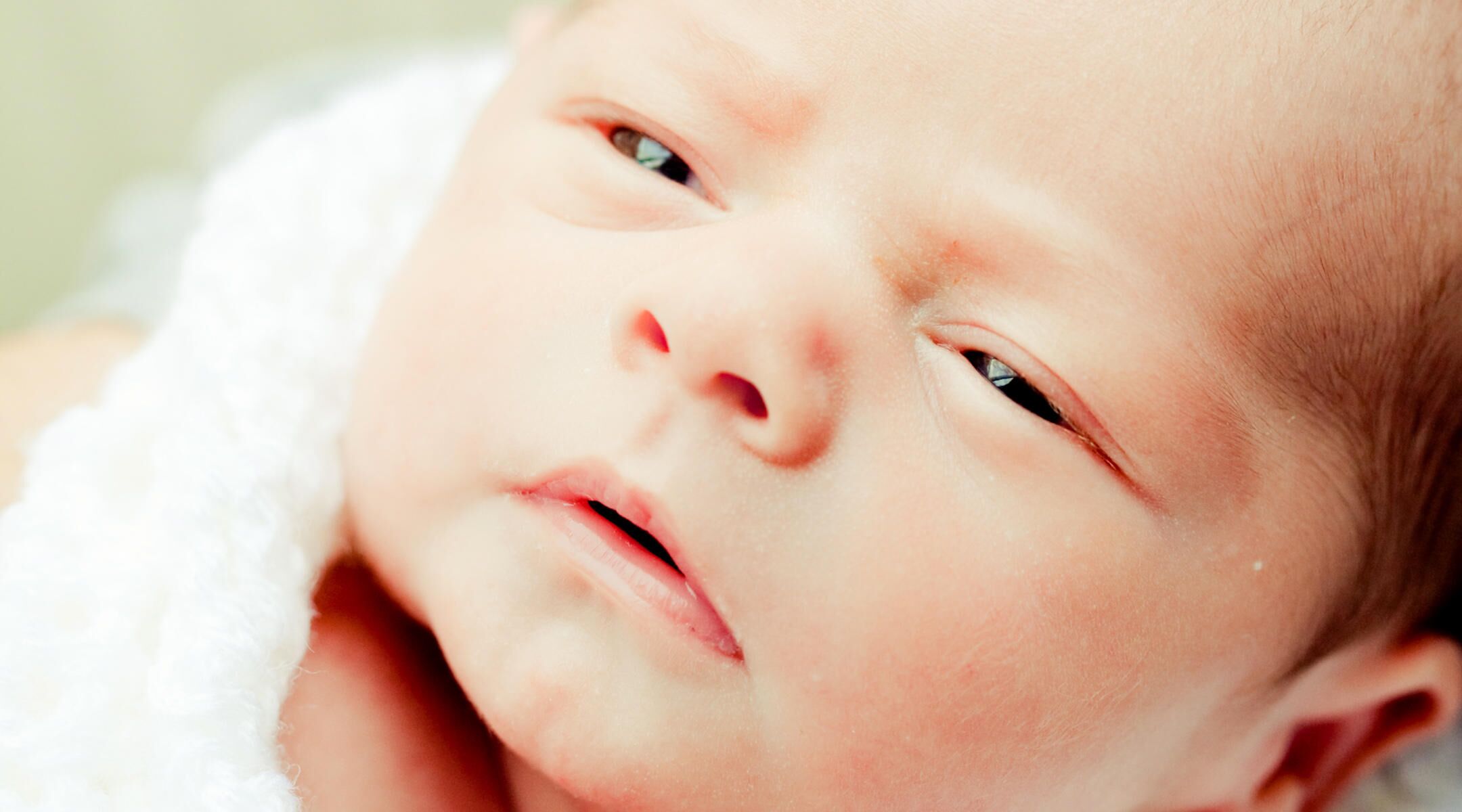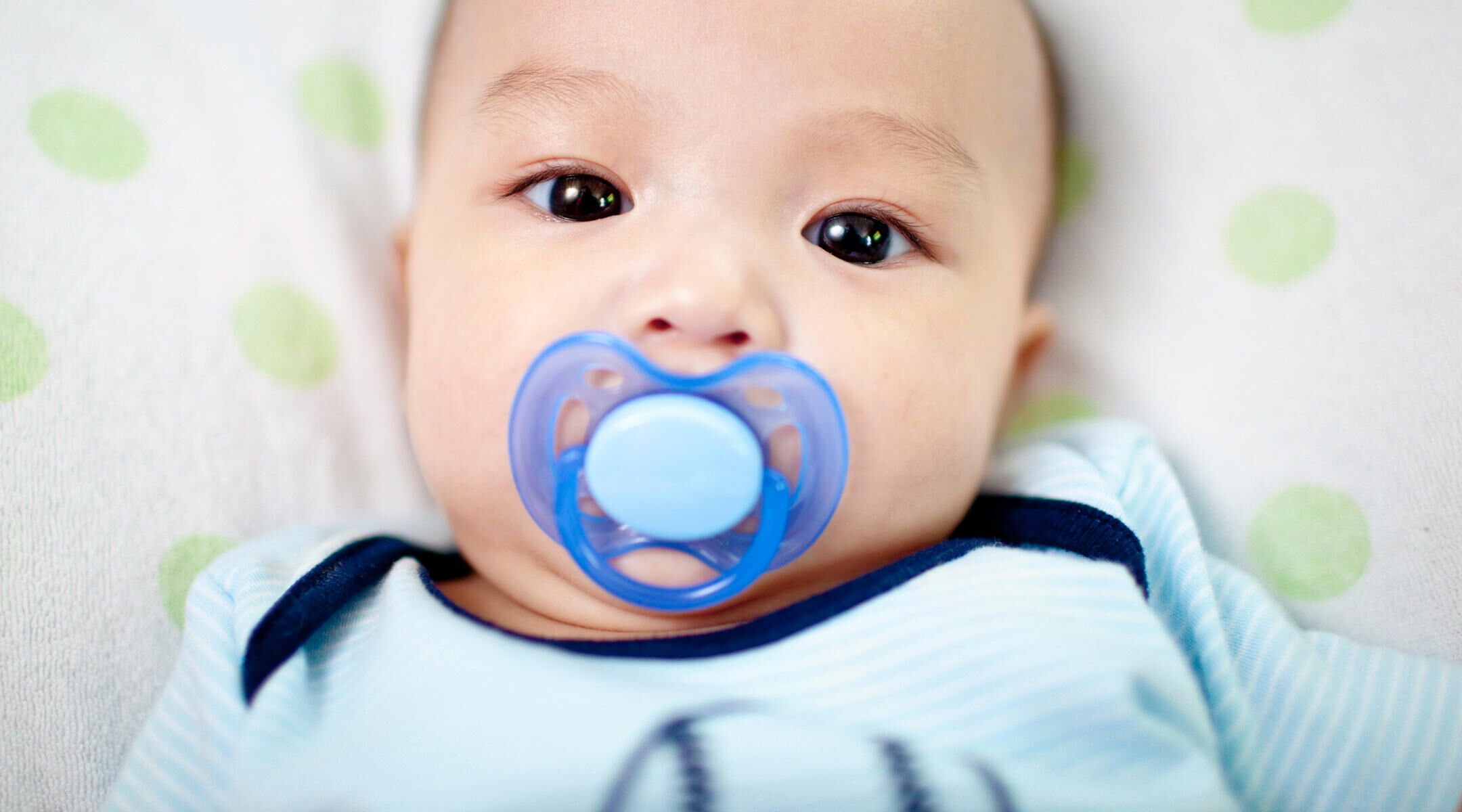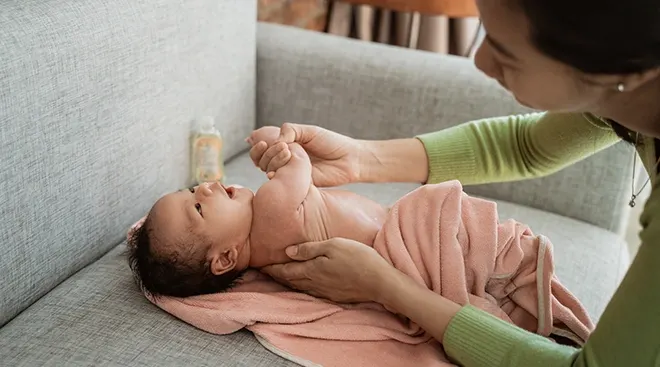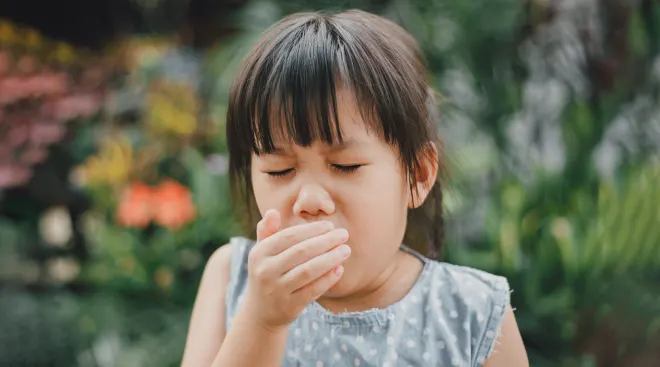When Do Babies’ Eyes Change Color?
When baby is born, you can’t wait to see their tiny hands and feet, the shape of their nose and the color of their skin, hair and eyes. But as you discover all their unique features and decide which parent they look more like, you might start to wonder: When do babies’ eyes change color? Will they always have those baby blue eyes, or will they eventually turn brown? If one parent has brown eyes and the other blue, will baby get hazel? “My husband and I have a 100 percent chance of having children with blue eyes,” says gollywollypog, a community member on The Bump forums. “We already have two with blue eyes, so number three is guaranteed.” So do all babies have blue eyes? And when do baby’s eyes change color? Read on to learn from experts if and when your newborn’s eye color will change.
- Baby’s eye color at birth depends on genetics and how much melanin begins to collect in the irises during the third trimester of pregnancy.
- Not all babies are born with blue eyes. If they’re born with brown eyes, they’ll probably stay brown.
- Typically, baby’s eye color may change throughout the first 9 months and possibly even up to their preschool years.
- It’s impossible to accurately predict baby’s eye color as numerous genes are involved.
You’ve probably heard that all babies are born with blue eyes—but experts say this is a myth. “Babies are born with all different colored eyes. Some have dark eyes already and some have blue,” says Mohamad S. Jaafar, MD, a pediatric ophthalmologist and chief of the division of ophthalmology at Children’s National Health System in Washington, DC.
It’s not a hard-and-fast rule, but Caucasian babies tend to be born with lighter eyes, while those of African-American, Asian and Hispanic descent are usually born with brown or dark brown eyes, even eyes that look black. Dash Retnasothie, OD, MS, a pediatric optometrist and CEO and founder of Smartbaby Decor LLC, attributes this characteristic to evolution and distance from the equator. She notes that northern European countries tend to have more people with lighter colored eyes due to a need to absorb less sunlight. “People near the equator had tons of sun,” she explains. “They needed their eyes to absorb more of it and needed that [extra] melanin as a protective barrier. That’s why there’s that distribution of people from the south having more brown eyes than in [northern] European countries.” (More about melanin and how it contributes to eye color below.)
My baby’s eyes were blue until around 10 or 11 months, and then they turned green!
Your child’s newborn eye color may be blue, but that doesn’t mean it’ll necessarily stay that way. So does eye color change with age? The experts say it can—to an extent. “Babies’ eyes tend to change color sometime between 6 and 12 months, but it can take as long as three years until you see the true color of what their eyes are going to be,” says Barbara Cohlan, MD, a neonatologist at St. Louis Children’s Hospital.
As a general rule of thumb, baby eye color tends to get darker if it changes. So if your child has blue eyes, they may turn to green, hazel or brown. “The changes are always going to go from light to dark, not the reverse,” Jaafar says. “If you have brown early on, they’re not going to become blue.”
When we talk about baby eye color, we’re referring to the color of the iris—the part of the eye behind the cornea that controls the size of the pupil to let light in. There are two reasons why baby eye color changes: genetics and melanin.
Genetics
The genes baby inherits from both parents play a role in determining their newborn eye color. In fact, experts say there are approximately 15 genes that are responsible for baby eye color, but two—OCA2 and HERC2—are the most predominant. Babies with the HERC2 gene have blue eyes that tend to stay blue, while babies with the OCA2 gene have green or brown eyes.
“The OCA2 gene tends to be more dominant than the HERC2 gene,” Cohlan says. That means that if baby has one of each gene, the dominant brown will probably win out. But if your child inherits two HERC2 genes, they’re more likely to have blue eyes, while two OCA2 genes mean baby will probably have brown eyes.
It’s easy to assume that if both parents have the same eye color, baby is fated to have the same. But inherited genes can actually skip generations. For example, if both parents have brown eyes, but one carries the blue eye gene from, say, Grandma, then baby could have blue eyes. “It’s impossible to predict a baby’s eye color just based on the parents’ eyes, because you don’t know if they’re carrying one of these other genes,” Cohlan says.
Melanin
The other factor that determines baby eye color is melanin, the pigment that gives skin, hair and eyes their colors. Melanin production starts in the third trimester but continues after birth. “The most important reason why the eyes have different colors is how much pigment there is on the back part of the iris,” Jaafar says. A baby who has a lot of melanin in the iris will have brown or very dark brown eyes, while a baby with a small amount of pigment will have blue or green eyes.
The amount of melanin that’s added to baby’s eyes as they get older influences eye color as well. “As they’re growing, some children pick up more and more pigment in the back of the iris. The irises are going to become darker, so they’ll change from bright blue to a dark blue to green or even to hazel,” Jaafar says. “You may have two siblings who are born with the same color iris, but in one baby there’ll be significant pigment progression and that child will have hazel eyes, while the other sibling will have a slow progression and that child will end up with blue eyes.”
Since baby eye color is determined by a combination of genetics and melanin, there’s no way to accurately predict what color eyes a child will end up with. “If a baby’s born with blue eyes, it’s a question of whether they’re going to stay blue,” Cohlan says. Babies with bright blue eyes will probably have light eyes through infancy, but you’ll have to wait and see what color they’ll eventually turn out to be.
Baby’s eye color may change up to 9 months old, Retnasothie says. However, some studies have found that for lighter colored eyes, it may continue to change up until 6 years old. What’s more, it found that between 10 and 15 percent of babies will continue to experience changes in eye color (albeit subtle) until they’re adults. It’s important to note that these changes are primarily seen in Caucasian people with lighter-colored eyes. “Generally brown or darker colored eyes tend to just stay the same,” Retnasothie says.
She adds it’s important to take any research on eye color with a grain of salt, as the reporting around it hasn’t been entirely accurate. “There’s no real grading scale for [eye] colors,” she says. Essentially, while there’s a range of eye colors, including blue, green, brown and gray, it’s hard to pinpoint all the different shades of each.
Baby is almost 13 months and who knows if his eyes will continue to change. They started out a deep, dark blue and gradually turned into a ‘blazel’ (blue/hazel), which is where they are now.
As noted, there’s no guaranteed way to predict baby’s eye color. You may go back to your high school notes to do a Punnett square to figure out the genetic probability of your little one having a certain eye color, but this method isn’t entirely accurate. “The Punnett squares only work if it’s one gene that’s responsible—now we know there are 15 to 16 genes responsible,” Retnasothie explains. “That’s why you’ll still have parents [each with blue eyes, that have kids that] turn out with brown or green [eyes].”
As noted, it’s pretty impossible to accurately predict what baby’s eye color might look like. But if you’re curious about their genetic probability based on your eye colors, check out the baby eye color chart below.
Frequently Asked Questions
When do babies get eye color?
Baby’s irises start to collect melanin in the womb, around 31 weeks, Retnasothie says; the color they are simply depends on how much has been collected there. The process of collecting this melanin continues after birth, and this is why baby’s eye color may continue to change after delivery.
What is the rarest eye color?
“I’d say green because nobody really categorized gray, but since they started categorizing gray, that’s the rarest,” Retnasothie says. She estimates that less than 2 percent of the global population has gray eyes. The second rarest eye color is green. Given that the rarest hair color is naturally red or auburn hair, green or gray eyes with red hair would be a pretty rare combination.
What’s the chance baby will have green eyes?
Retnasothie states that green eyes have a 9 percent prevalence in the US and a 2 percent prevalence globally—but, again, take these numbers with a grain of salt. “In the scientific world, there's not a lot of importance put on eye color because it doesn't really link itself much to big stuff like diseases,” she explains.
Is it possible for baby to have violet eyes?
“Scientifically, it’s not possible to inherit violet eyes,” Retnasothie notes. However, some people may have a disease like ocular albinism, which is a rare genetic disorder that causes decreased melanin in the iris. “The eyes may look reddish and sometimes purple depending on the lights,” she says. “Generally speaking, that kind of issue—like reddish and purplish colors—they're going to indicate that there's pathology. It's not going to be a normal healthy eye color.”
Is it possible to change baby’s eye color?
Considering baby’s eye color is a genetically inherited trait, it’s impossible to change. There’s “nothing a mom can do during pregnancy, and nothing you can do or eat or that’s going to change it,” Retnasothie says.
How likely is it baby will be born with two different eye colors?
The condition that causes two distinct eye colors is called heterochromia, and it’s very rare—occurring in less than one percent of the population, Retnasothie notes. Heterochromia may denote an underlying condition or it may be completely normal. “If we do see a kid with two different colored eyes, then we note it and do some screening just to make sure it's completely normal inheritance,” she adds.
When do babies start to see clearly?
According to the American Academy of Opthamology, babies develop their depth perception between 5 and 8 months and will begin to see completely clearly by the time they’re a year old.
While you can use tools and personal calculations to get an idea, it’s impossible to tell what baby’s eye color will be and how it might change after birth. Baby’s eye color begins to form during the third trimester of pregnancy and is determined by genetics and melanin. If baby’s born with brown eyes, odds are, they’ll stay brown and may even darken. If baby’s born with gray, blue or green eyes, you may see slight color changes until baby is 9 months, or maybe up to 6 years old. (And no—all babies aren’t born with blue eyes.)
Please note: The Bump and the materials and information it contains are not intended to, and do not constitute, medical or other health advice or diagnosis and should not be used as such. You should always consult with a qualified physician or health professional about your specific circumstances.
Barbara Cohlan, MD, is a neonatologist at St. Louis Children’s Hospital in Missouri. She earned her medical degree from New York University and completed her residency at Children's Hospital of Philadelphia.
Mohamad S. Jaafar, MD, is a pediatric ophthalmologist and chair emeritus of the department of ophthalmology at Children’s National Health System in Washington, DC. He also serves as a professor of ophthalmology and pediatrics at the George Washington University. Jaafar earned his medical degree from the American University of Beirut and completed his residency at MedStar Washington Hospital Center.
Dash Retnasothie, OD, MS, ia a pediatric optometrist and the CEO and founder of Smartbaby Decor LLC, a baby brand that develops products to improve kids’ visual and overall development. She earned her master’s degree from York University and completed her optometric degree and residency at the Southern California College of Optometry.
JAMA Network, Eye Color Changes Past Early Childhood, May 1997
American Academy of Opthamology, Vision Development: Newborn to 12 Months, July 2024
Real Parent Perspectives:
Learn how we ensure the accuracy of our content through our editorial and medical review process.
Navigate forward to interact with the calendar and select a date. Press the question mark key to get the keyboard shortcuts for changing dates.

































